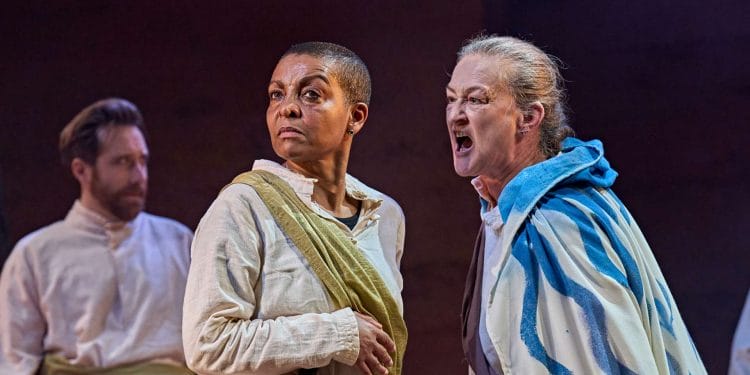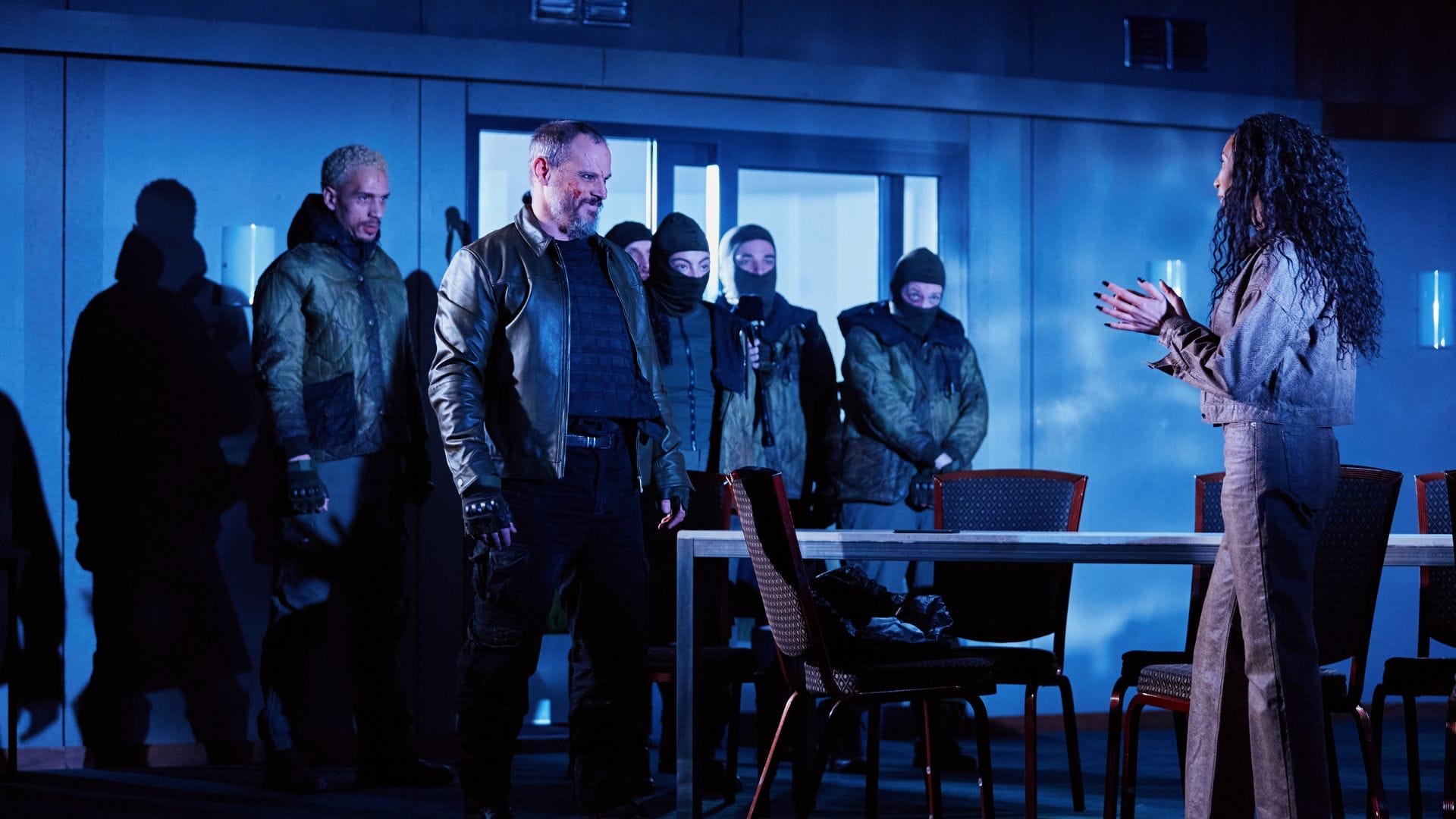 400 years on from his immortalisation by Shakespeare and Richard III is perhaps still the most notorious and challenging of literary anti-heroes. Arrogant, vengeful, and ruthless as the day is long (and how long the day is, especially “by this sun of York”!), Richard III has effectively become the archetype for the ‘disfigured brute’.
400 years on from his immortalisation by Shakespeare and Richard III is perhaps still the most notorious and challenging of literary anti-heroes. Arrogant, vengeful, and ruthless as the day is long (and how long the day is, especially “by this sun of York”!), Richard III has effectively become the archetype for the ‘disfigured brute’.
In the follow-up to her 2019 production of Richard II at the Globe, Adjoa Andoh directs herself in what she boasts to be a new imagining of Richard III at the Rose Theatre in Kingston upon Thames. Andoh sets out to examine the complications that arise in our identifications, our presumptions, and our loyalties once Richard is ‘othered’ in a way beyond his disability. If he may only prove his worth to his country through acts of deception, violence, and warring, where will such commitments lead him? While Andoh’s performance is luminous in its obsession and supported by a cast as dedicated to their roles as Richard is to his own selfish ends, there is little novelty in the play’s allegedly new interpretation even when compared to those of the most disciplined of purists.
Andoh assumes a familiarity with Richard’s cruel deeds and works to obfuscate his evil deeds to build empathy (often obscuring them with shadow-play). However, this is where her directorial conceit falls apart. Without building empathy for Richard himself—who, in Andoh’s reading, would likely be motivated by factors well beyond vengeance and ambition (including the history of systemic racism in the UK and intergenerational trauma and anger)—the play, despite its claims, fails to criticise the racialising and othering which Richard III faces. Though Farah Karim-Cooper acknowledges the “diabolism, blackness, and deformity” to which descriptions of Richard are linked, no attempts to unravel the implications of such language are made. If, as Andoh posits in her director’s note, Richard is judged on his cunning and machiavellian leadership in the face of war—if he is “valued for what [he does], not what [he] look[s] like,” then the moments where such language is used (“diffused infection of a man,” “hell’s black intelligencer”) require more critical attention.
The show’s production design is similarly veiled and confused in intention. Its distinct elements shine by themselves: Maybelle Laye’s intricate costumes are steeped in historical allusions to Wessex folk traditions from hobby horse caricatures to maypole celebrations; the pastoral setting and agricultural motifs evoke the timeless observation of nature. However, Andoh’s miscellaneous ambitions ultimately fail to complement one another, rivaling each other instead.
From the use of a life-size puppet to embody the young prince of York for a laughably short scene (Mervyn Millar, Maia Kirkman-Richards, Tracy Waller) to the pastoral accompaniment which introduces us to Andoh’s vision of Richard (and which is quickly dropped in favour of a buzzy and foreboding airhorn) (Yeofi Andoh), many of the show’s design choices seem at odds with one another. The staging itself is impeded by the space’s inflexible composition: three trees tower above the scene, forming a spindly canopy, and blocking much movement across the stage (Amelia Jane Hankin). What results is movement without contrast. The show’s fight scenes are all choreographed around these limitations, causing for very horizontal and leveled staging void of contrasts. Not even Richard’s last stand at the battle at Bosworth Field can conjure sufficient variety to honor the scene’s climax (Jack Murphy).
Lighting designer Chris Davey’s rapturous use of shadow and silhouette to dramatise Richard’s increasingly violent delusions of grandeur offer a rare glimpse into the show’s potential toward thematic cohesion which, if plucked and dropped into a show of equal solidarity, would keep a chilling and sinister inventory of Richard’s deeds and waylay the quirky slapstick to which Andoh’s production design otherwise lends itself.
Despite their potential, most of Andoh’s choices fall flat when they are brought to bear the confused delivery of the play. Though interesting in their own right, the show’s disparate elements serve only to distract from Andoh’s avowed reading of the text through the lens of the Black experience. While there are glimpses of such a critical lens, Andoh’s production is ultimately an underdeveloped patchwork of identity without a consolidated purpose.
Richard III will run through May 13th 2023 at Kingston upon Thames’ Rose Theatre.

















